Amidst the shallow waters of Cuba’s southern coastline, lobster is just one more dish on the menu of fishing boats. At times the offer of lobster becomes so repetitive that some would rather exchange it for chicken or fish. Too much of one thing becomes tiresome, and this seafood delight is no exception.
Only a few miles away, on dry land, the panorama is very different. Seizures and violations by the country’s authorities form part of a commitment to ensure that every last pound of lobster goes to the tourism sector or is exported, in order to generate revenue for the country’s economy.
But out here, the hundreds of fishermen whose job it is to capture these delicious crustaceans are far removed from this reality.
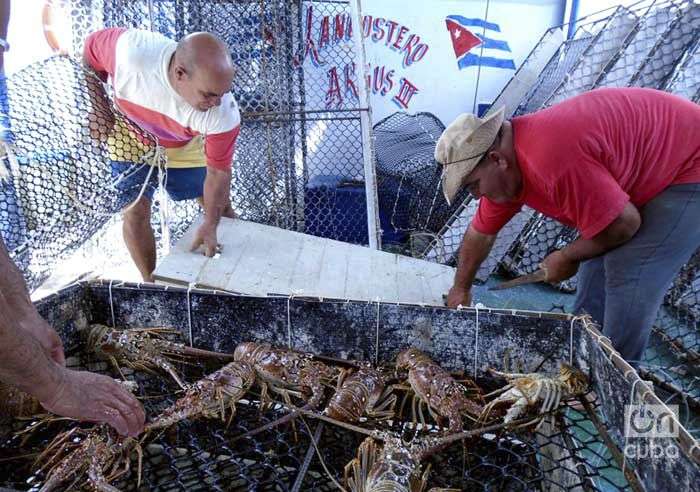
Their task is to retrieve lobsters from the seabed and ensure that they arrive to port safe and sound. They explain that rudimentary methods were used in the past but that practices have been modernized over the years.
Rogelio Millar, captain of the Ferro 304, notes that in his grandfather’s time, no one would have imagined that 100 tons of lobster could be caught by a single boat in a year.
At that time, the fishermen used a glass-bottom bucket to locate the lobsters under the water; which they would then dive in and retrieve. In 2014, however, Rogelio and his crew ended the year with a total catch of over 150 tons.
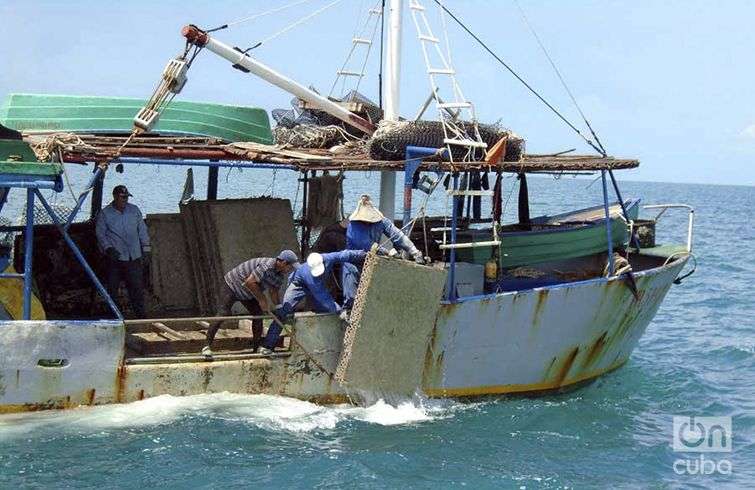
Such an achievement has been made possible thanks to the introduction of better boats and new technologies, including several different models of cage; in addition to the creation of storage pools, a kind of small aquarium located at the bottom of a platform inside the boat where the catch of the day is deposited; meaning that no time is lost returning to port, and fishing can continue.
Even so, lobster fishing continues to be a hard and lonely job, which sees these men spend the majority of their life at sea. The pay is good, with each crew member able to earn over 6,000 pesos or 1,000 CUC a month; 52 times the average Cuban salary and no one would doubt that it is well earned money.
The fishers often note that it’s their families who really reap the benefits of their work. Nonetheless, life at sea has other rewards: fresh air, beautiful landscape, and limitless lobster…
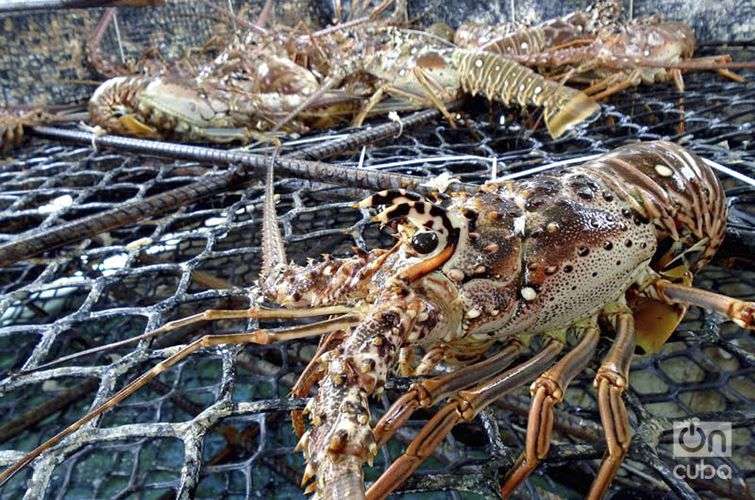
For a long time, only storms and perhaps the anguish of having to enter the water during the winter months would affect their routine. Today, however, they also have to deal with poaching, a practice which is fighting to keep its head above water throughout Cuba’s south-western region, precisely the most productive zone in the country.
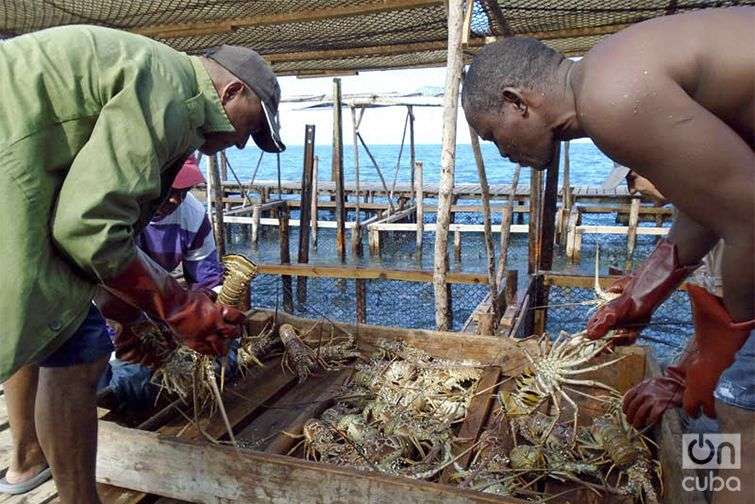
Rolando Muñoz, captain of the Argus II, states that poachers set off from various costal towns such as Dayanigua, Boca de San Diego, Majana, in illegal boats to sack their cages.
But the problem goes far beyond just stealing lobsters. “In the process of bringing up the ropes and nets, they also destroy our fishing equipment. When this happens, not only do we lose the catch, but we also have to spend days repairing cages.”
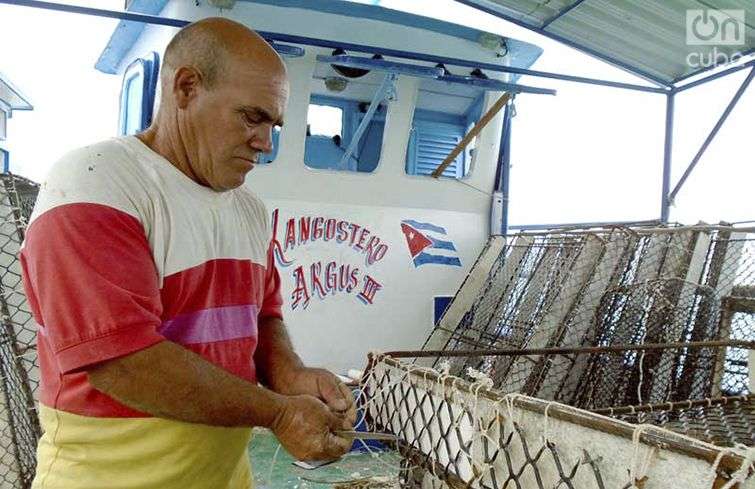
According to figures from the National Fishing Inspection Office, as a result of actions taken by authorities to contain the situation, both at sea and on land, in 2014, 14 tons of lobster were seized, with a further seven confiscated by August, 2015.
Despite these measures, many fishermen agree that poaching continues to be a problem.
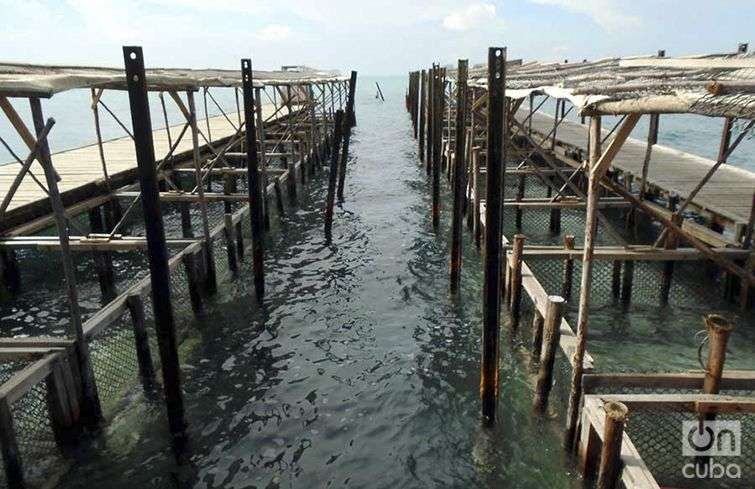
Eladio Lazo, head of zone 9 storage center, a man used to listening to the laments of the crewmembers who arrive there daily; states that for better or worse, thefts occur throughout the entire platform.
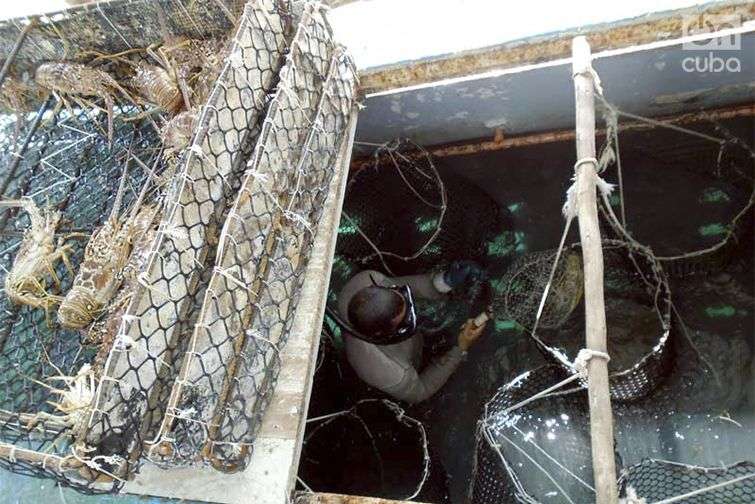
Poaching, according to Eladio is a complicated issue, with many causes, such as the lack of employment options in many coastal towns and the high price of lobster on the black market.
In addition those who sail these Caribbean waters adhere to a widely held belief that “he sea is home to pirates.”
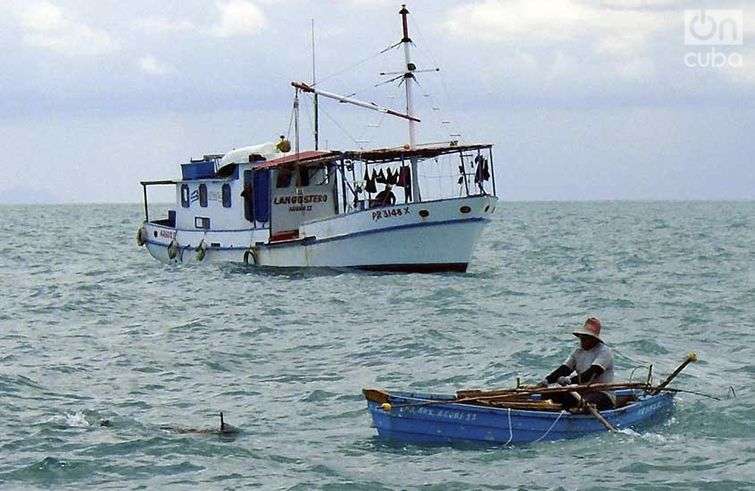

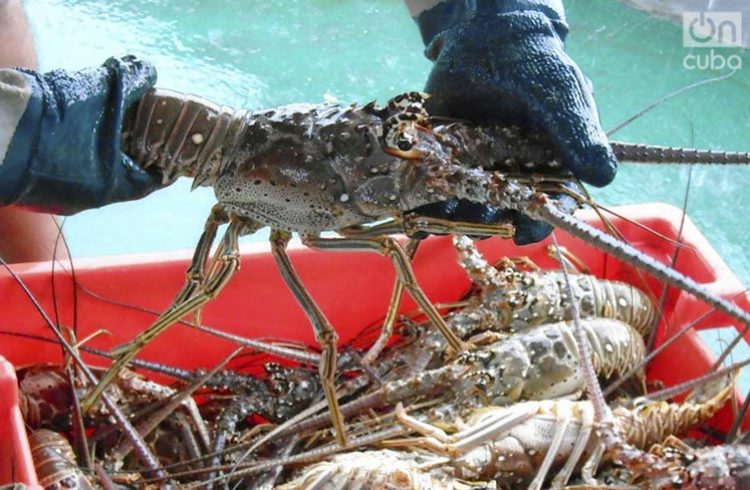









If people in Cuba had a better life style that poaching problem could be severly redused. Ask your Comandantes for solutions other than jailing everybody that opposes the system.
Well, I used to live in a fishing town in the southern coast of Pinar del Río. The fishermen there captured quite a few tons of lobster on a regular basis. True, buying and selling them in the local ‘black market’ was still illegal, but everybody knew who to go to when wanting to buy some “tails.” It was rather easy to get them locally (not in Havana, of course). It sort of makes sense that the authorities choose to make their trade illegal, but I do believe that those who capture them should at least have the right to keep some of them. I know a few fishermen who got ruined by the authorities for getting caught in “illegal practices.” Nobody agreed with how ruthless the authorities were with these fishermen; it was not fair. Again, they should be allowed to keep a share of what they fish – in my opinion at least.